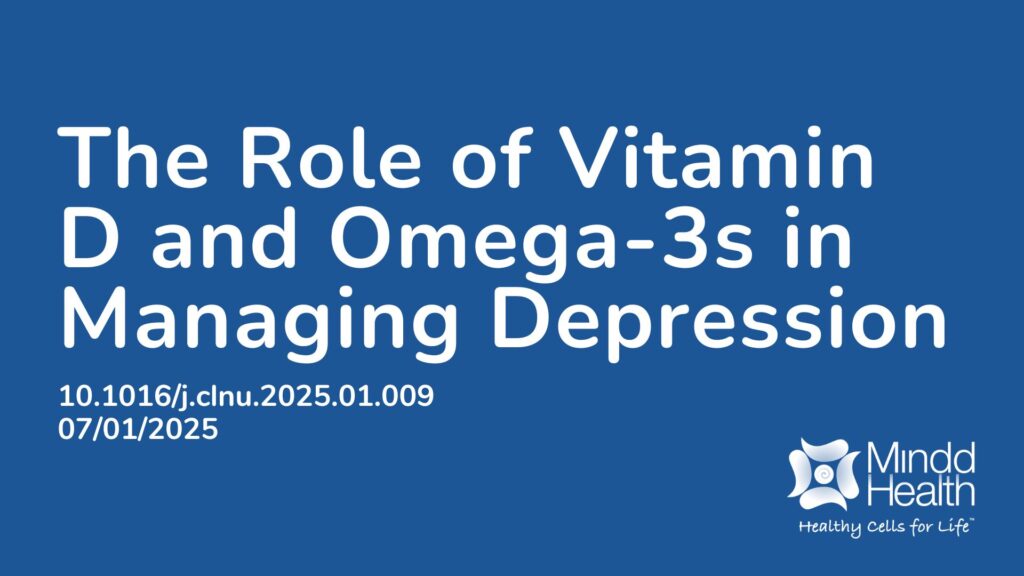Summary:
Depression is a complex mental health condition influenced by neurotransmitters, inflammation, and hormonal changes. Research suggests that nutrition plays a role in managing depressive symptoms, particularly through Vitamin D and Omega-3 fatty acids. These nutrients affect brain function by supporting neurotransmission and reducing inflammation, both of which are key factors in depression. This literature review explores the role of Vitamin D and Omega-3 fatty acids in depression. It found that deficiencies in Vitamin D or Omega-3s can increase the risk of depression and that supplementing with these nutrients can improve mood and cognitive function, especially in individuals who are deficient. Omega-3 fatty acids, especially EPA and DHA, help regulate serotonin levels and protect brain cells, while Vitamin D influences brain activity and reduces inflammation. The review concluded that incorporating Vitamin D and Omega-3s into mental health treatment plans shows promise and could be a valuable addition to traditional depression treatments, particularly when personalized to individual needs.
Abstract:
Background: Depression is a pervasive mental health disorder with complex etiologies involving neurotransmitter imbalances, inflammation, and hormonal dysregulation. Emerging evidence highlights the significance of nutritional interventions in improving depressive symptoms. Objective: This review explores the mechanisms of action and clinical applications of Vitamin D and Omega-3 fatty acids in managing depression, providing insights into their potential therapeutic roles. Methods: A comprehensive search was conducted across databases, including PubMed, Scopus, Web of Science, and PsycINFO. Keywords such as “depression,” “Vitamin D,” “Omega-3 fatty acids,” “nutritional psychiatry,” and “mental health” were employed. Articles were selected based on relevance, methodology, and contribution to the understanding of nutritional interventions in depression. Observational studies, randomized controlled trials, and meta-analyses were prioritized, while non-peer-reviewed sources were excluded. Results: Vitamin D modulates neurotransmitter activity, reduces neuroinflammation, and influences neuroplasticity, enhancing cognitive function and mood regulation. Omega-3 fatty acids, particularly EPA and DHA, exhibit anti-inflammatory properties, optimize serotonergic transmission, and stabilize neuronal membranes. Clinical evidence suggests that supplementation with these nutrients can significantly reduce depressive symptoms, particularly in patients with comorbid nutritional deficiencies. However, variability in study designs and dosages limits the generalizability of findings. Conclusion: Integrating Vitamin D and Omega-3 supplementation into mental health care holds promise as an adjunctive strategy for treating depression. However, limitations in existing studies, including heterogeneity in study design and dosage, warrant further investigation.
Article Publication Date: 07/01/2025
DOI: 10.1016/j.clnu.2025.01.009



